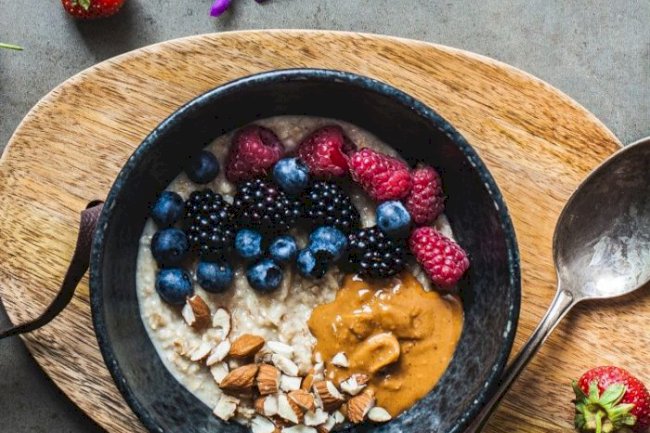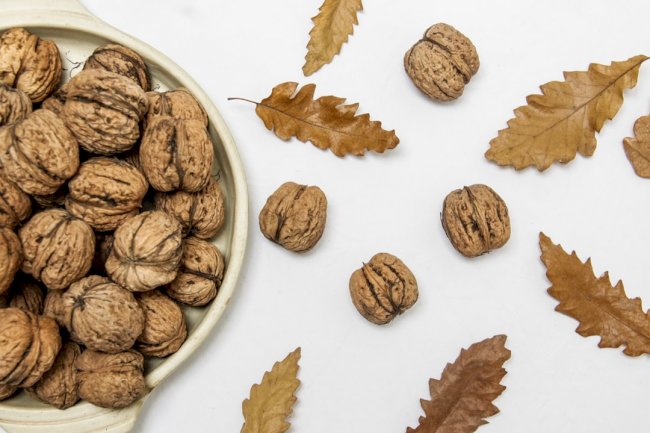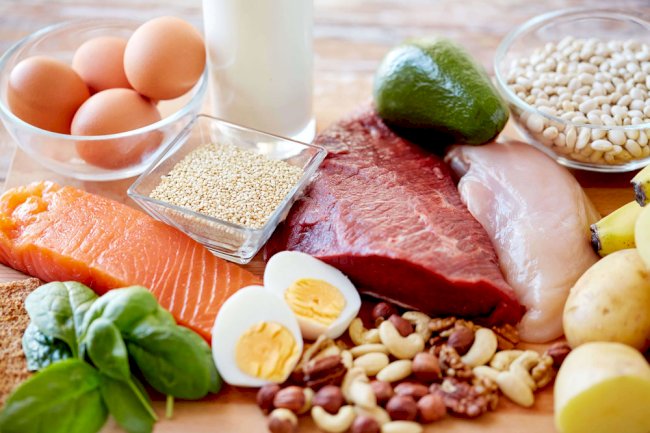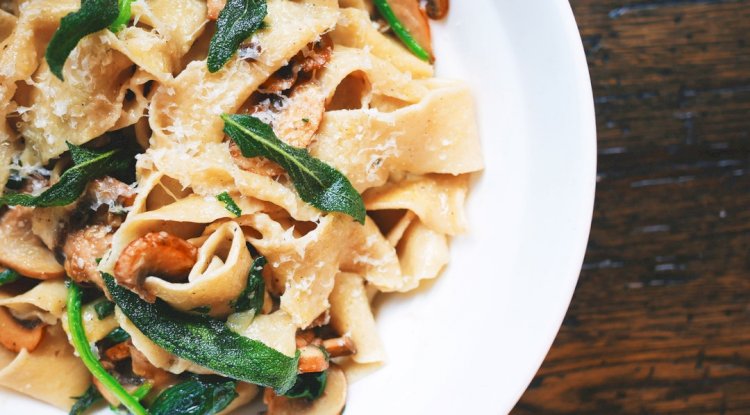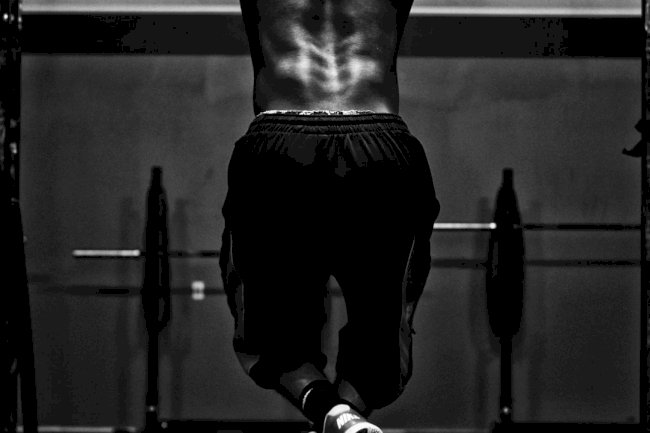Think Weight Loss - Think Complex Carbohydrates
There's been a lot of misconception about the role of carbohydrates and complex carbohydrates as regards weight loss, here we set the record straight.

Often times we think of carbohydrates (simple and complex), as bad for weight loss, when literally the opposite is the case. First off let's get the basics, shall we.
What are Carbohydrates?
Carbohydrates are a type of macronutrient, just like protein or fat. Carbs are the main energy source of the human diet, according to an American Journal of Clinical Nutrition article.
There are three types of carbs in our diets, which are as follows:
-
Complex carbs (starches)
-
Simple carbs (sugars)
-
Dietary Fiber
1 Complex Carbohydrates (Starches)
Complex carbs, or starches, are made up of long chains of sugar molecules that your body then breaks down for energy. These carbohydrates keep you full for longer because they take more time for your body to digest. While complex carbs are often less refined than their sugar counterparts, that doesn't mean sources of complex carbs are not processed at all (for example, whole grain bread).
Examples include but not limited to:
-
Whole grain foods like quinoa, barley, brown rice, and oats.
-
Whole-grain, processed products like bread, pasta, cereal, and crackers.
-
Legumes like lentils, chickpeas, kidney beans, green peas, and split peas.
-
Other starchy vegetables like potatoes, sweet potatoes, and corn.
2 Simple Carbohydrates
Simple carbs are basically sugars, or are sometimes referred to as "fast-acting carbs." They're found mainly in fruits and vegetables, but also in refined (processed) grains, cakes, and other baked goods. Simple and refined, they burn up fast, spiking your blood sugar and causing it to crash, leaving you with a craving for more (sugar) carbs.
3 Dietary Fibre
Dietary fiber is an indigestible long chain of sugar molecules. Fiber is found in the same foods that contain complex carbs, such as fruits, veggies, grains, and legumes.
Now..
What Makes Complex Carbohydrates Healthier than Simple Carbohydrates For Weight Loss?
You'll definitely want to swap out simple Carbohydrates for their complex counterparts for these reasons.
-
Quick-burning, highly-refined simple carbohydrates don't usually contain the plethora of health-promoting vitamins and minerals that complex carbohydrates do.
-
Complex carbohydrates take longer for your body to break down, which means you'll spend more energy to burn these than simple sugars.
Below are Examples of Complex Carbohydrates That Can be Really Helpful in Your Weight Loss Journey as well as a Healthy Lifestyle:
1 Black Beans
Next time you turn on the slow cooker to make your homemade beef chili, don't forget to add some black beans. Out of all beans, this dark legume has the highest amount of the antioxidant anthocyanin, which forms a strong defense against cardiovascular disease. A daily half-cup serving of canned beans provides 7 grams of protein and 8.5 grams of fiber, according to the USDA National Nutrient Database.
2 100% Whole Grain Bread
With whole-wheat bread, you're getting all three parts of the grain: the bran, germ, and endosperm. Refined grains lack the bran and germ, which the Whole Grains Council says contain 25 percent of a grain's protein. You'll want to be careful picking out a loaf in the grocery store, as many breads are filled with high fructose corn syrup or a blend of whole and white wheats. Make sure your bag says "100% Whole Wheat" and know that it's worth splurging on the pricier stuff.
3 Oatmeal
Oatmeal is a great source of complex carbs that fuels the body (with energy) and (is packed with) fiber to decrease the risk of heart disease," shares Jim White, RD, ACSM, HFS. Start your day with a warm and comforting bowl of steel-cut oats. These crunchy grains are your best bet when choosing which morning staple to consume because they're less processed than quick-cook oats and therefore retain more fiber and protein. Specifically, oats contain 5 grams of protein and 4 grams of fiber per half-cup serving. This essential macronutrient combo will help crush cravings and keep hunger pangs at bay, especially since the specific soluble fiber found in oats, known as beta-glucans, has been shown to enhance feelings of satiety.
4 Whole Wheat Pasta
Regular pasta is made with white wheat flour, which has been stripped of the grain's nutrient-dense bran and germ, which are brimming with fiber, protein, and vitamins and minerals. Go for whole-wheat or whole-grain pasta to reap some satiating benefits. Here's another waist-whittling trick: After cooking your penne, pop it into the fridge and then dig in when it's cold. Cooling the noodle turns its starch into resistant starch, which digests more slowly, discouraging you from spooning into a second helping.
5 Green Peas
Beyond the abundance of vitamins and minerals, a cup of peas contains more than a third of your kid's daily fiber intake, more than most whole-wheat breads. In one four-week Spanish study, researchers found that eating a calorie-restricted diet that includes four weekly servings of legumes aids weight loss more effectively than an equivalent diet that doesn't include them. Those who consumed the legume-rich diet also saw improvements in their "bad" LDL cholesterol levels and systolic blood pressure. To reap the benefits at home, add lentils, chickpeas, peas and beans into your diet throughout the week.
6 Barley
Give the regular old wheat a break from your weekly lunch rotation and switch it up with barley. The high-fiber whole-grain is loaded with essential vitamins and minerals such as mood-boosting B vitamins, immunity-protecting selenium, and bone-building manganese. What's more, a study published in the Journal of the American College of Nutrition found that barley helped participants lower their weight, cholesterol levels, and reduced feelings of hunger.
Here's why Complex Carbohydrates Matter in Weight Loss
Carbohydrates of both types (Simple and Complex) can be stored only in limited quantities in the body. If they're not quickly used for energy via exercise or other physical activity, they're broken down and converted into fat. Simple carbs break down quickly, whereas complex carbs break down more slowly. The faster carbs break down, the quicker you'll gain weight. That's why complex carbs are recommended for those looking to lose weight. They allow you a bit more time to hit the gym and burn off some energy before those carbs become fat. As always - it's up to you to get moving.
What's Your Reaction?







